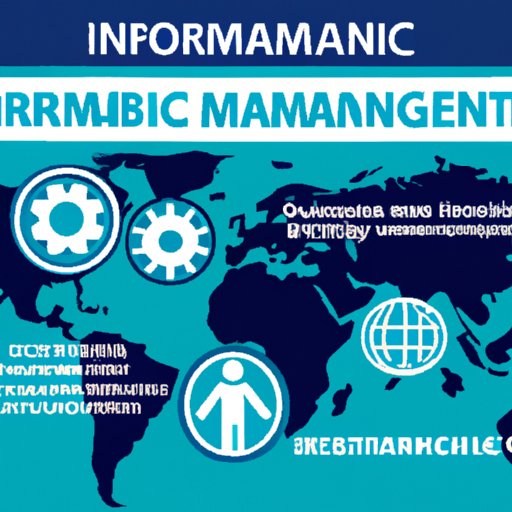Introduction
International business management is the process of managing and coordinating activities across different countries and cultures. It involves understanding the complexities of cross-cultural communication and the impact of globalization on both the local and global economies. It also requires knowledge of the role of economics, leadership, and technology in managing a successful international business. In this article, we’ll explore the different aspects of international business management and examine how it can be used to create successful businesses globally.
Exploring Different Aspects of International Business Management
One of the most important aspects of international business management is understanding cross-cultural management. This involves recognizing and respecting cultural differences and adapting strategies to accommodate them. It also involves being aware of social norms, language barriers, and religious beliefs in different countries. By understanding these differences, businesses can better meet the needs of their customers and build stronger relationships with them.
In addition to understanding cross-cultural management, it’s important to consider the impact of globalization on international business management. Globalization has allowed businesses to expand beyond their local markets and operate in multiple countries, which has created new opportunities for growth. However, it has also brought about new challenges, such as competition from other international businesses and the need to comply with different laws, regulations, and standards in each country.
The role of economics is another important factor to consider when managing an international business. Understanding economic trends and developments in different countries can help businesses make informed decisions about where to locate their operations and what products or services to offer. It can also help businesses plan for future growth and manage risk effectively.

Examining the Role of Leadership in International Business Management
Leadership is essential for any business, but it is especially important in international business management. Leaders must have strong communication skills and be adept at making decisions quickly and effectively. They must also be able to motivate and inspire their teams, while ensuring that everyone is working toward a common goal.
Leaders must also be able to identify and develop key competencies among their staff. This includes having a good understanding of the different cultures and languages in the countries they operate in, as well as the ability to manage cross-border transactions and navigate the legal and regulatory environment. Leaders should also be knowledgeable about the latest trends and technologies in international business, so they can stay ahead of the competition.

The Role of Technology and Innovation in International Business Management
Technology and innovation are becoming increasingly important in international business management. Automation, data analytics, and artificial intelligence are being used to streamline processes, reduce costs, and improve efficiency. These technologies can also help businesses gain insights into customer behavior and preferences, enabling them to tailor their offerings and better meet customer needs.
It’s also important to recognize the potential of emerging technologies, such as blockchain and the Internet of Things. These technologies can enable businesses to securely conduct international transactions and gather valuable data that can inform strategic decisions. By leveraging these technologies, businesses can remain competitive in a rapidly changing global environment.

Global Trends in International Business Management
There are several global trends that are impacting international business management. One of the most significant is the move toward sustainable practices. Companies are looking for ways to reduce their environmental impact and increase their social responsibility. This includes investing in renewable energy sources and adopting green manufacturing processes.
Another trend is the emergence of new markets, such as those in Asia and Africa. These markets present new opportunities for businesses to expand their operations, as well as the potential for greater profits. It’s important for businesses to understand the unique challenges and opportunities that come with entering these markets.
Conclusion
International business management is a complex and ever-evolving field. It involves understanding cross-cultural management, the impact of globalization, and the role of economics, leadership, and technology in creating a successful international business. Additionally, global trends such as the move toward sustainable practices and the emergence of new markets are transforming the way businesses operate. By staying up to date on the latest developments in international business management, businesses can remain competitive and maximize their potential for success.
(Note: Is this article not meeting your expectations? Do you have knowledge or insights to share? Unlock new opportunities and expand your reach by joining our authors team. Click Registration to join us and share your expertise with our readers.)
